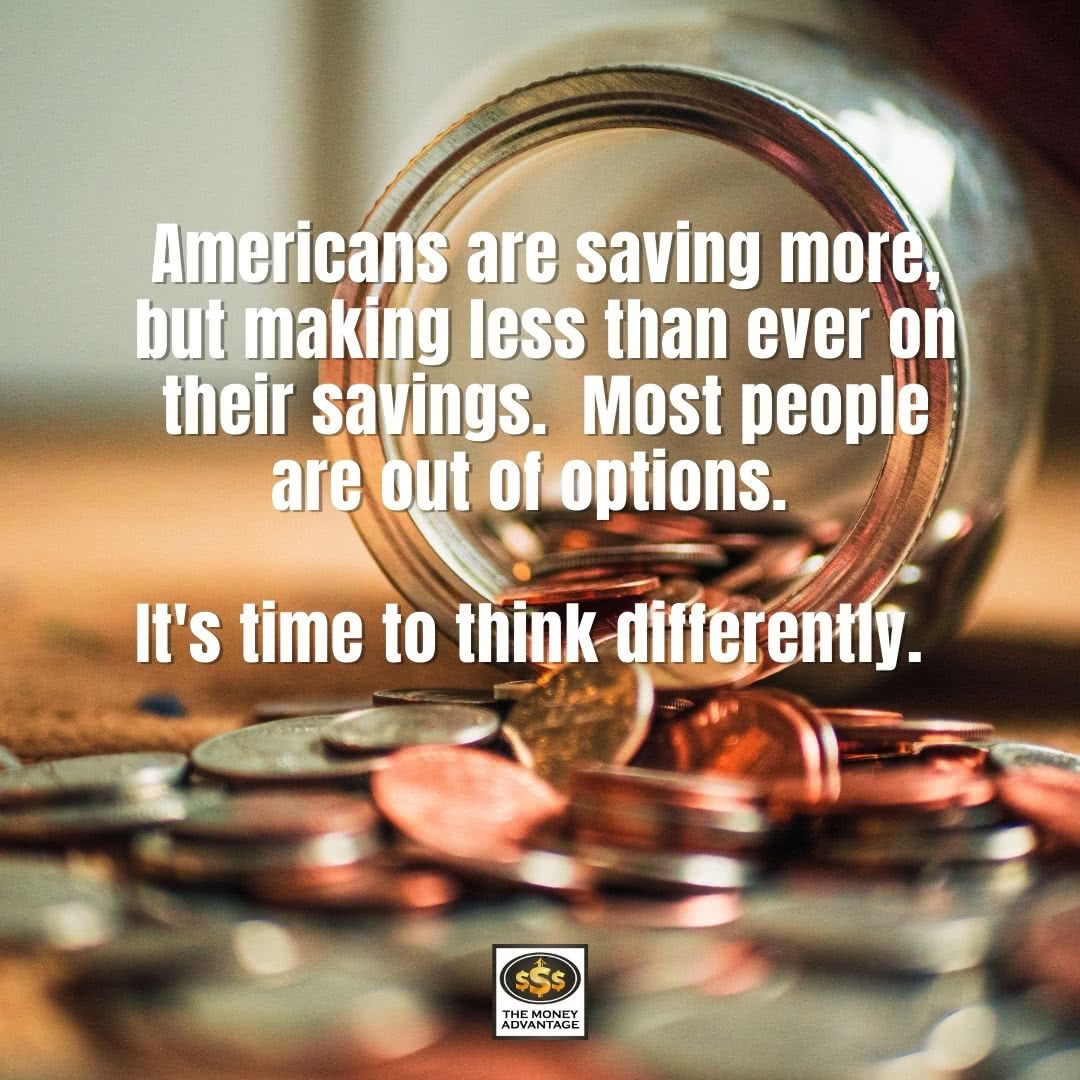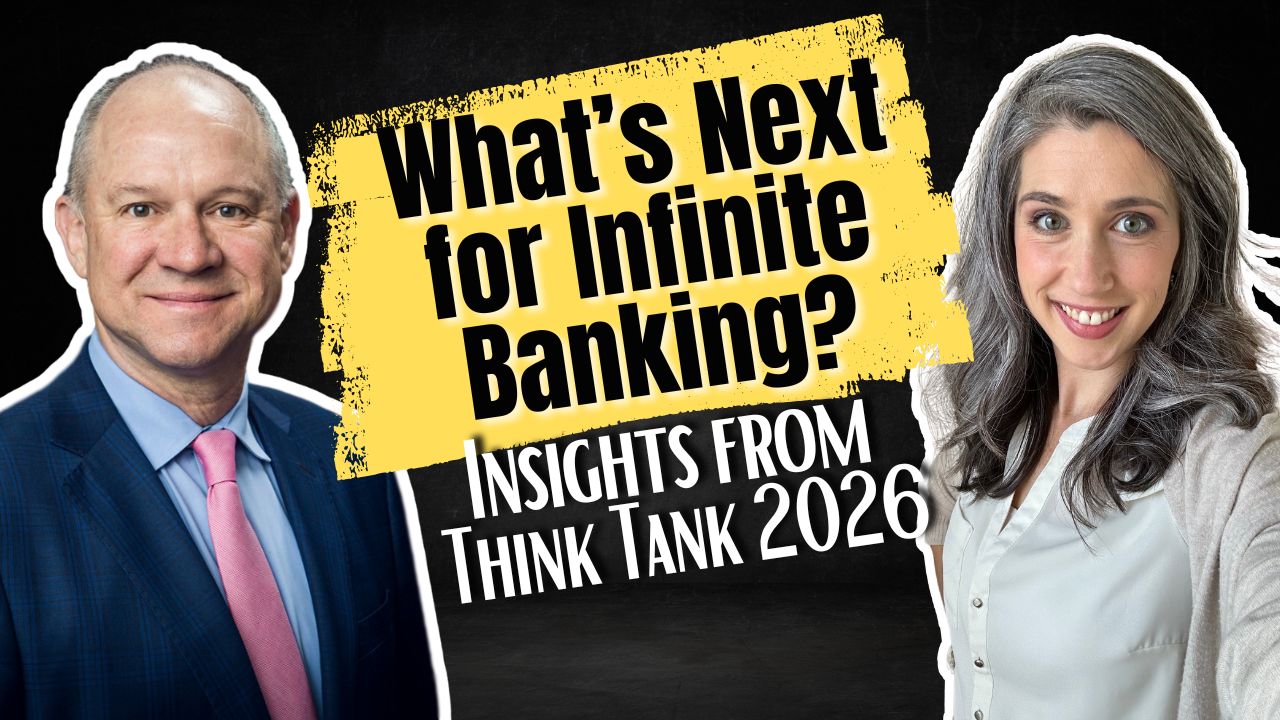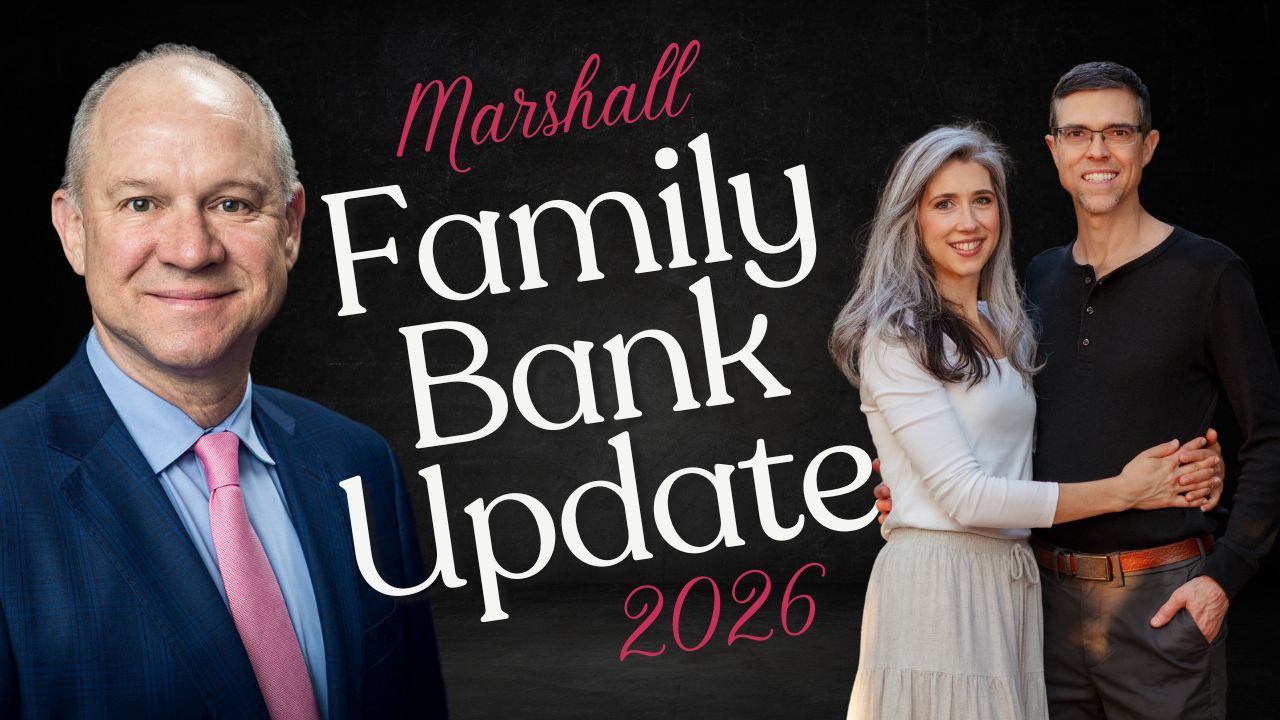
Best Places to Save Money: Secure and Grow Your Savings
Americans are saving more money than ever, yet interest rates are at an all-time low. If you’re looking for the best place to save money, it might be time to stop saving with banks.
A recent CNBC article states: “In the midst of the coronavirus crisis, many Americans are spending less and saving more. At the same time, banks are paying next to nothing on those deposits.”
Are you, too, looking for the best place to keep savings but want to make sure you’re doing the most with your money? Today, we’re talking about this unspoken challenge from a fresh lens.
So if you want to learn about one of the best places to save money, so you don’t have to give up returns or resort to high risk in search of them… tune in below!
Podcast: Play in new window | Download (Duration: 1:00:21 — 69.1MB)
Subscribe: Apple Podcasts | Spotify | Android | Pandora | Youtube Music | RSS | More
Table of contents
Why More People are Saving
Americans are saving more money than ever, yet bank savings rates are at an all-time low. So, how does a scenario like this happen?
We think primarily, COVID-19 has been an eye-opener for the world. On one hand, workers who were affected by job closures have likely realised that they didn’t have enough money saved to fall back on. While a tough lesson to learn, the fact that Americans have been successfully saving more money gives us hope. After all, having money saved is what enables you to weather economic storms (and seize opportunities when things are going well).
On the other hand, business closures meant a lack of things to do. Movie theaters, aquariums, museums, restaurants, and shops all closed. Pretty much all indoor (and many outdoor) businesses had to shut down for a good portion of the year. This also means that many families turned to other alternatives for entertainment, in other words, free. Hiking, swimming, and being outdoors became more popular. Americans started saving more money by default because so many businesses put a halt to operations.
So not only are people choosing to create better savings habits, they’re also creating better spending habits. Now that you have the money, it’s time to ask—where is the best place to put your money?
Interest Rates and the Federal Reserve
A tumultuous economy means changing interest rates. The Federal Reserve controls interest rates, and in order to boost the economy, they’ve lowered rates dramatically, almost to zero. Meanwhile, they’ve also pumped trillions of dollars into the banks. Now, banks are at a surplus – meaning that overnight lending between banks is down, as are savings rates.
In the past, banks would use high-interest rates and “prizes” to incentivize opening accounts at their establishment, appealing to people who were looking for the best places to save money. Now, with a surplus, there’s no need for banks to offer this incentive. High savings rates are the bank’s way of broadcasting that they want your money, and they’re willing to offer something in return. Now, banks can lower these incentives almost to zero, because they aren’t relying on that money to come in.
We’re seeing a mismatch in supply and demand. While there’s a high demand for a safe place to store liquid cash, where it will also grow, there’s relatively low demand from banks for new accounts.
Decline of Customer Service
One unfortunate consequence of this low-interest-rate market is a decline in customer service. Because banks do not need new accounts, they are not incentivising new customers, which also means that there is no incentive for them to provide better customer service. Combine that with a high demand for saving and a pandemic, and the issue worsens. Lobbies are closed, drive-through lanes are cramped, and phone service is difficult.
Bank Accounts and Lending
Under normal circumstances, banks have higher interest rates on savings accounts and money market accounts because they want your money. Ultimately, because that’s how they make theirs. You see, banks don’t lend their own money to their customers. They leverage their customers’ money – YOUR money.

For example, if you deposit $100,000 into a savings account, making 0.05%, you’ll earn $50 on that deposit. Then, say that the bank agrees to loan that same $100,000 to someone else for their mortgage. If they offer an interest rate of 3%, that’s $3,000 of interest. So the bank is making 60 times what they’re paying you in interest. In other words, for a $50 investment in your savings account, they’ve made $3,000.
We’re not arguing that banks shouldn’t make a profit. However, we are saying that this is the reason for low interest rate markets – to bolster banks and get money recirculating.
Yet what if you could store your money elsewhere, earn a better savings rate, and be able to leverage that money in the same way as the banks do? Because if the bank can do it, so can you.
Traditional and Alternative Savings Options Compared
Let’s compare the places to save money that might be described as popular, mainstream options.
Traditional savings accounts offer FDIC insurance but minimal growth. They keep your money safe, but let inflation quietly chip away at its value. Money market accounts might be a slightly better place to keep savings with marginally higher rates and check-writing ability, but they still fall short of true growth.
CDs lock your money away for months or years. Many consider these a good place to save money they won’t need right away, but early withdrawal penalties can be steep.
Apart from banks, other options exist for anyone looking for the best places to save money:
High-yield online savings accounts typically offer better rates than physical banks. They could be worth considering when looking for where to save money for better returns.
Credit unions are member-owned and often provide better savings rates than commercial banks, and could be another viable place to keep your money.
Treasury bills and notes offer government-backed security with potentially higher returns than standard savings accounts. Generally speaking, they are a good place to save money for those with a slightly longer time horizon.
Money market mutual funds, though not FDIC-insured, provide another place to keep savings. They usually offer higher yields than traditional accounts while maintaining reasonable liquidity.
But Where Is the Best Place to Save Money?
When families ask me about the best place to keep savings, I have to be honest with them. While the aforementioned suggestions are viable, they just aren’t cutting it anymore – you can do so much better.
Your money should be safe. It should grow. And you should be able to use it when you need it! Most savings options force you to give up at least one of these essentials. But what if you didn’t have to compromise?
Utilizing a strategy we call infinite banking, you can do what the banks do, and at a better savings rate than you’ll get with the banks. It starts with a specially designed whole life insurance policy with a mutual company.
This concept has been used for hundreds of years, yet it feels like it’s one of the world’s best-kept secrets. Why? Because today, it’s primarily the super wealthy who use this strategy.
Whole Life Insurance: Emergency Fund and Alternative High-Yield Savings Account
To clarify, life insurance is not a savings account. However, it is the best place to store money in the form of liquid capital that we have found.
One of the great strengths of a whole life policy is the savings rate. Whole life insurance has a cash value benefit, on top of the death benefit. This is cash that you have access to while living and is guaranteed to grow each year. You can also receive non-guaranteed dividends. However, most companies have paid dividends for over a hundred years.
To do what the banks do, you can take a policy loan. Rather than liquidating your cash value, you’re using your value as collateral to get a loan from the insurance company. When you withdraw money from a savings account or money market fund, you stop the full compounding growth of your money. When you take a whole life insurance policy loan, you keep your money in place so it can compound uninterrupted…and you still have money to use.
Then, you can use that policy loan for cash-flow investments and opportunities. As Robert Kiyosaki says, you should look to use “other people’s money” (OPM) as often as possible. The more you can create situations of leverage, the more you can grow your wealth at the same time as you create new streams of income and cash flow.
Why isn’t it Mainstream?
One reason Privatized Banking strategies aren’t well-known is that insurance companies are very conservative with their spending. This says something about the safety of life insurance companies and how they’ve survived every economic downturn. One way these companies cut spending is by limiting their advertisements; instead, they rely on their producers or agents to do the advertising or word-of-mouth ads for them.
Common Savings Mistakes to Avoid
Over the years, I’ve watched families make these costly mistakes when considering the best places to save money:
- Letting cash sit idle in checking accounts isn’t being conservative; it’s missing opportunities to grow your family’s future. Remember, every dollar deserves a purpose!
- Jumping from one “high-yield” account to another. The best place to keep your money involves so much more than simply hunting down an extra 0.1% interest.
- Forgetting about inflation is another common mistake. When prices rise faster than your savings grow, the purchasing power of your hard-earned money shrinks. What seems safe is actually losing value every day.
- Ignoring the tax impact. What matters isn’t just what your chosen place to save money earns – it’s what you keep after taxes. Sometimes, a tax-advantaged option is truly the best place to save money for long-term growth.
- Having all your savings in one type of account. Different needs require different approaches to where you keep your money. Your emergency fund might need a different home than your legacy-building capital.
Families who avoid these mistakes and think differently about the best places to save money create stronger financial legacy foundations for generations to come.
Bottom Line
Finding the best place to save money today means thinking outside the box. Most families are still settling for savings options that serve the banks more than their own needs.
We have seen firsthand how whole life insurance becomes an incredible place to keep savings, offering protection, growth, and access that puts banks to shame. It’s no wonder the wealthy have used this strategy for generations to build lasting legacies.
Book A Strategy Call
Do you want to coordinate your finances so that everything works together to improve your life today, accelerate time and money freedom, and leave the greatest legacy? We can help!
Book an introductory call with our team today to learn how privatized banking, alternative investments, or cash flow strategies can help you accomplish your goals better and faster.
That being said, if you want to find out more about how privatized banking gives you the most safety, liquidity, and growth… plus boosts your investment returns, read our free guide to find out more and guarantee a legacy.
Nelson Nash Think Tank 2026 Recap: What Serious Practitioners Want Families to Understand
The “Real Show” Reminder (and why that matters) We kicked off this episode the way we often do—by being real. A quick tech hiccup, a laugh, and the reminder that this is not a polished production pretending to be perfect. It’s a real show, with real people, talking about real money decisions. And that imperfect…
Marshall Family Banking System Case Study: In-Force vs Original Illustration (Part 6)
The moment we realized “liquidity” isn’t a theory Thirteen years ago, Lucas and I thought we were being responsible by storing a lot of our capital in gold and silver. It felt safe. It felt timeless. It felt like the kind of move people make when they’re thinking long-term. And then we needed cash. Not…




